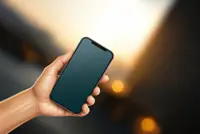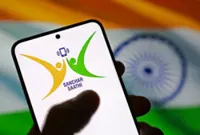For some, a weekend spent disconnected may seem simple, yet it may be a more herculean task than expected. — Mobile business photo created by jannoon028 - www.freepik.com
CLEVELAND: I’ve long been a bit haughty about social media and cellphones, and the hold they appear to have on so many people.
Not me, I’ve congratulated myself. I like having a smartphone and I’m tangentially conversant with its many wondrous functions, but generally limit its use to making and receiving calls. I’m happy to be untethered from the coiled wire that once limited communication to hearth and home, but otherwise I am not a prisoner of my mobile phone.
Already a subscriber? Log in
Save 30% OFF The Star Digital Access
Cancel anytime. Ad-free. Unlimited access with perks.





